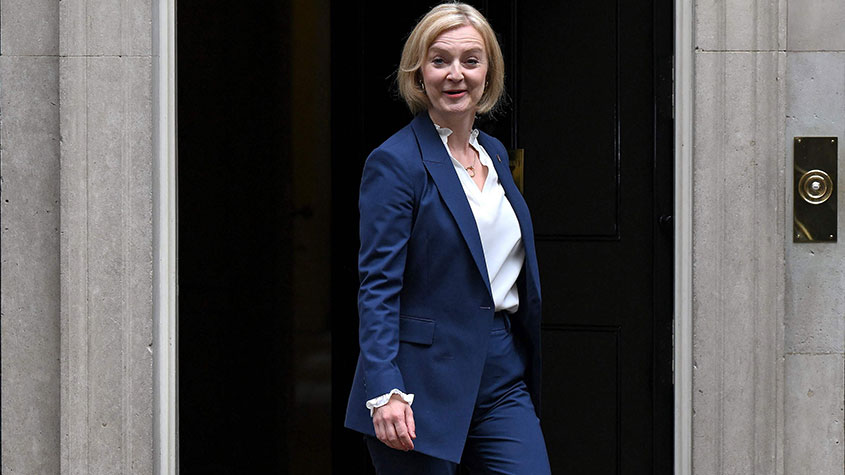Ashtead – a building equipment rental firm on solid foundations
The prospects for Ashtead, the building-equipment rental firm, are auspicious. Matthew Partridge explains the best way to play the share price.


Get the latest financial news, insights and expert analysis from our award-winning MoneyWeek team, to help you understand what really matters when it comes to your finances.
You are now subscribed
Your newsletter sign-up was successful
Want to add more newsletters?

Twice daily
MoneyWeek
Get the latest financial news, insights and expert analysis from our award-winning MoneyWeek team, to help you understand what really matters when it comes to your finances.

Four times a week
Look After My Bills
Sign up to our free money-saving newsletter, filled with the latest news and expert advice to help you find the best tips and deals for managing your bills. Start saving today!
In the immediate aftermath of the first wave of the pandemic there was much talk about the need to “build back better” by spending more on infrastructure. The idea was that this would not only jumpstart the major economies by putting people to work, but also make up for decades of underinvestment that had led to severe deficiencies, something that was increasingly acknowledged as a problem even before 2020.
Throw in a housing boom, and it’s no surprise that the shares of firms involved in the manufacture and rental of construction and industrial equipment surged for most of last year.
However, over the last nine months this boom has started to unravel. There are several reasons for this. Firstly, central banks have started to raise interest rates in order to temper inflation, making it more expensive to finance infrastructure projects and raising fears that house prices may decline.
MoneyWeek
Subscribe to MoneyWeek today and get your first six magazine issues absolutely FREE

Sign up to Money Morning
Don't miss the latest investment and personal finances news, market analysis, plus money-saving tips with our free twice-daily newsletter
Don't miss the latest investment and personal finances news, market analysis, plus money-saving tips with our free twice-daily newsletter
The rising price of energy and food are also starting to squeeze people’s incomes, raising fears of recession. Finally, governments are also looking at ways to cut spending in order to tackle the huge fiscal costs imposed by the pandemic.
Benefiting from diversification
One company that has been caught up in this downturn is equipment-rental specialist Ashtead Group (LSE: AHT). The stock has fallen by over 40% since last November. The fall looks overdone. Firstly, there is little sign that the slowdown in demand is affecting its core construction business, now mainly focused on the US.
The company recently reported that it continues to benefit from supply-chain problems with manufacturers that have resulted in an overall shortage of equipment. It also believes that there is a longer-term shift to companies renting equipment rather than buying it outright.
Another reason why a construction downturn won’t affect Ashtead as much as some experts think is that it has been putting a lot of effort over the past fifteen years into diversifying its business. As a result, it now receives a rising proportion of its money from other sectors, such as the film industry and “mega projects”. These projects, such as carmakers building new facilities to manufacture electric cars, are particularly important, as they not only bring in large amounts of revenue, but are also relatively immune to economic downturns.
Ashtead has a strong growth record: sales rose by 60% between 2017 and 2021, while profits increased by a similar amount. At the same time it continues to earn a very strong return on capital expenditure (a key gauge of profitability) of between 12%-15% a year, allowing it to keep increasing the dividend. Yet it trades at only 12.5 times 2023 earnings, a very modest valuation compared with both the US and UK markets.
In addition to the group’s strong fundamentals, there is evidence that the shares may have bottomed out over the past few weeks. They are now trading above their 50-day moving average. I recommend going long at the current price of 3,785p at 50p per £1. With a stop-loss of 2,005p, this would give you a total downside of £890.
Get the latest financial news, insights and expert analysis from our award-winning MoneyWeek team, to help you understand what really matters when it comes to your finances.

-
 Can mining stocks deliver golden gains?
Can mining stocks deliver golden gains?With gold and silver prices having outperformed the stock markets last year, mining stocks can be an effective, if volatile, means of gaining exposure
-
 8 ways the ‘sandwich generation’ can protect wealth
8 ways the ‘sandwich generation’ can protect wealthPeople squeezed between caring for ageing parents and adult children or younger grandchildren – known as the ‘sandwich generation’ – are at risk of neglecting their own financial planning. Here’s how to protect yourself and your loved ones’ wealth.
-
 Why you should keep an eye on the US dollar, the most important price in the world
Why you should keep an eye on the US dollar, the most important price in the worldAdvice The US dollar is the most important asset in the world, dictating the prices of vital commodities. Where it goes next will determine the outlook for the global economy says Dominic Frisby.
-
 What is FX trading?
What is FX trading?What is FX trading and can you make money from it? We explain how foreign exchange trading works and the risks
-
 The Burberry share price looks like a good bet
The Burberry share price looks like a good betTips The Burberry share price could be on the verge of a major upswing as the firm’s profits return to growth.
-
 Sterling accelerates its recovery after chancellor’s U-turn on taxes
Sterling accelerates its recovery after chancellor’s U-turn on taxesNews The pound has recovered after Kwasi Kwarteng U-turned on abolishing the top rate of income tax. Saloni Sardana explains what's going on..
-
 Why you should short this satellite broadband company
Why you should short this satellite broadband companyTips With an ill-considered business plan, satellite broadband company AST SpaceMobile is doomed to failure, says Matthew Partridge. Here's how to short the stock.
-
 It’s time to sell this stock
It’s time to sell this stockTips Digital Realty’s data-storage business model is moribund, consumed by the rise of cloud computing. Here's how you could short the shares, says Matthew Partridge.
-
 Will Liz Truss as PM mark a turning point for the pound?
Will Liz Truss as PM mark a turning point for the pound?Analysis The pound is at its lowest since 1985. But a new government often markets a turning point, says Dominic Frisby. Here, he looks at where sterling might go from here.
-
 Are we heading for a sterling crisis?
Are we heading for a sterling crisis?News The pound sliding against the dollar and the euro is symbolic of the UK's economic weakness and a sign that overseas investors losing confidence in the country.